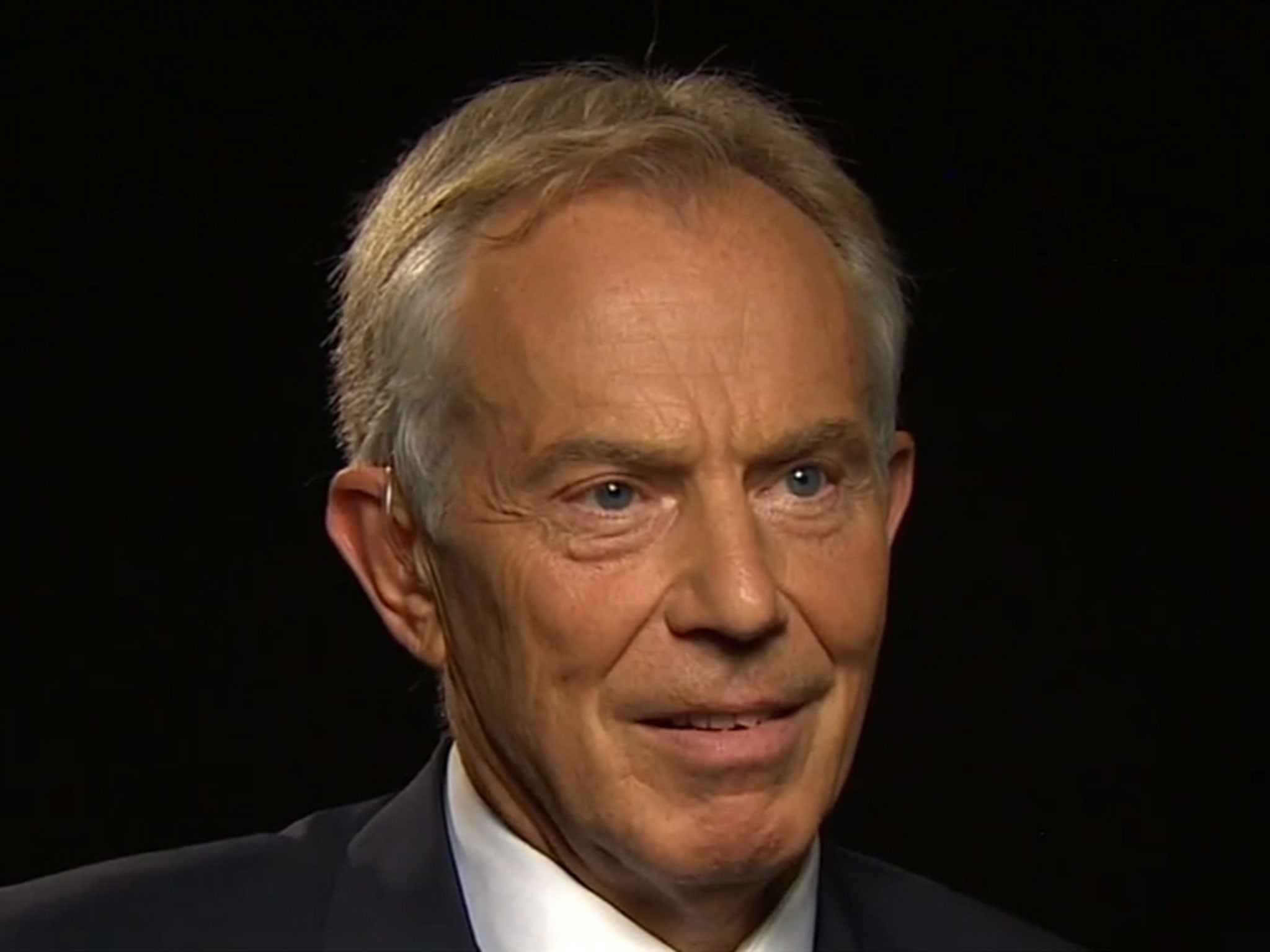Tony Blair’s acceptance that Iraq war facilitated rise of Isis is a first step to acknowledging the conflict was a disaster
The Chilcot report should help us understand where we go from here; but events are moving in utterly unpredictable ways

Your support helps us to tell the story
From reproductive rights to climate change to Big Tech, The Independent is on the ground when the story is developing. Whether it's investigating the financials of Elon Musk's pro-Trump PAC or producing our latest documentary, 'The A Word', which shines a light on the American women fighting for reproductive rights, we know how important it is to parse out the facts from the messaging.
At such a critical moment in US history, we need reporters on the ground. Your donation allows us to keep sending journalists to speak to both sides of the story.
The Independent is trusted by Americans across the entire political spectrum. And unlike many other quality news outlets, we choose not to lock Americans out of our reporting and analysis with paywalls. We believe quality journalism should be available to everyone, paid for by those who can afford it.
Your support makes all the difference.Tony Blair’s admission that there are “elements of truth” in the idea that the invasion of Iraq in 2003 assisted the rise of Isis is a step forward, and not just for the former prime minister. For it represents progress in coming to some sort of understanding about that ill-starred adventure and its longer-term consequences.
Welcome as they are, though, his comments – and all previous memoirs, histories, inquiries, apologies and semi-apologies – are no substitute for a thorough investigation into the decision to go to a war that had such grievous consequences. The cruel, murderous, disastrous results of the illegal Anglo-American invasion of Iraq are still being felt across the Middle East and, indeed, the world.
A great arc of permanent violence has opened up from Nigeria to Somalia to Afghanistan and, through terrorism, far beyond. It would be wrong to label this a third world war, but, in its global reach and irreconcilable enemies, its destruction of nations and cities, and its generation of mass movements of peoples, it certainly qualifies as a war. That we can trace the plight of Syrian and Iraqi refugees back to those conversations between Mr Blair and President George Bush at Camp David is now acknowledged by at least one of those men.
We should long ago have had the benefit of a comprehensive uncovering of the truth in the Chilcot report. We are told a timetable for publication will be set out next week, and there always has to be some question about whether Mr Blair’s latest revelations are related to that. He would not be the skilful politician we know him to be if he didn’t want to get his spin on the matter aired first.
Perhaps that is unduly conspiratorial – but Mr Blair did take the opportunity to repeat his old line about not apologising for the removal of Saddam Hussein. The riposte to that must be that toppling a dictator could not, by itself, justify an illegal war based on overstated intelligence about weapons of mass destruction. Twelve years on, it is clear that the late Robin Cook was right: had Saddam continued to be “caged” by no-fly zones and sanctions, we might not have seen the loss of millions of lives.
Mr Blair may be right, however, that the Arab Spring might have brought upheaval to the region anyway – but when Iraq was so destabilised it is impossible for him to deny that the Spring might have become a brighter political season had the 2003 invasion not occurred. The rise of Isis was not an inevitability; it was the consequence of an ill-conceived and unwinnable “war on terror”. This also allowed the Taliban to make a comeback in Afghanistan, a further calamity.
This modern history matters because it is part of achieving a sort of justice for those civilians and service people who lost their lives and those whose loved ones were injured in these conflicts. We need to understand, too, how we got into this mess so we might better get the world out of it.
Even so, whatever Mr Blair says now will not, in the short run, save a single refugee child from drowning in the Mediterranean or freezing in a mountain camp in Lebanon or the Balkans. It will not prevent a single woman being raped by militants from Isis, al-Shabaab or Boko Haram, nor the attempted genocide of minorities and destruction of human rights and cultural heritage. We shouldn’t let the events of 2003 distract us from action now.
The Chilcot report should help us to understand where we go from here; but events are moving in utterly unpredictable ways. What we in the West need are the ideas, the policies and the materials – financial, intelligence, political, diplomatic, religious, military – and, above all, the willpower to decide what to do next and see it through. In 2003, at least to Mr Bush and Mr Blair, the problems seemed clear-cut, the course of action compelling and the armed forces to effect it readily available; if only things were so obvious today.
Join our commenting forum
Join thought-provoking conversations, follow other Independent readers and see their replies
Comments